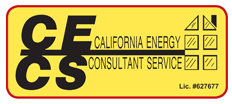Understanding the symbiotic relationship between indoor humidity, HVAC efficiency, and comfort is key to creating a harmonious living environment. The right balance of indoor humidity plays a pivotal role in not just how comfortable we feel in our homes but also in the efficiency and longevity of our HVAC systems. Let’s explore how managing indoor humidity effectively can transform your home into a serene oasis, replete with optimal comfort and enhanced HVAC performance.

The Impact of Indoor Humidity on HVAC Efficiency
HVAC systems are not just tasked with heating or cooling homes. They also play a crucial role in managing indoor humidity levels. When humidity levels are too high, your air conditioning system works harder than necessary to remove excess moisture from the air, leading to increased energy consumption and reduced efficiency. Conversely, when the air is too dry, your heating system must work overtime to keep your indoor environment warm and comfortable. This delicate balance significantly affects your HVAC system’s performance and longevity. Therefore, maintaining optimal humidity levels is essential for ensuring your system runs efficiently.
Strategies for Managing Indoor Humidity
The local climate presents unique challenges in maintaining ideal indoor humidity levels year-round. Here are strategies to help you manage indoor humidity effectively:
- Invest in a High-Quality Humidifier or Dehumidifier. Depending on the season, utilizing a humidifier can add the necessary moisture to your indoor air during dry months, while a dehumidifier can remove excess moisture during the wetter seasons.
- Upgrade to Energy-Efficient Windows. Old, leaky windows can contribute to poor humidity control. Upgrading to energy-efficient windows can help maintain a consistent indoor environment, reducing the strain on your HVAC system.
- Regular HVAC Maintenance. Routine maintenance of your HVAC system ensures that it operates at peak efficiency. This includes checking the system’s ability to effectively control humidity levels in your home.
- Use Exhaust Fans. In areas of your home that generate a lot of moisture, like the kitchen and bathroom, using exhaust fans can help reduce humidity levels.
- Seal Leaks and Insulate. Ensuring your home is well-sealed and insulated helps keep moisture levels in check, preventing excessive humidity or dryness that can impact comfort and HVAC efficiency.
The Comfort Connection: Balancing Humidity for Optimal Living
The link between indoor humidity and comfort cannot be overstated. High humidity levels can make your home feel stuffy and warmer than it actually is, while too low humidity can cause discomfort such as dry skin and respiratory problems. By achieving the right balance, you not only enhance the comfort of your living space but also contribute to a healthier indoor environment.
Advancements in HVAC Technology for Humidity Control
The integration of smart HVAC technology offers promising solutions for managing indoor humidity efficiently. Smart thermostats, for instance, can automatically adjust the humidity levels based on the outdoor climate and your personal preferences. This not only optimizes your home’s comfort levels but also reduces energy consumption by ensuring your HVAC system operates only when necessary.
Embracing these strategies and technologies means not just improving the efficiency and performance of your HVAC system but also contributing to a sustainable living environment. Managing indoor humidity is a critical aspect of creating a comfortable, healthy, and energy-efficient home.
For all your heating and cooling needs, turn to California Energy Consultant Service. In addition to window replacement and energy assessments, we also provide HVAC services, from HVAC repairs and replacements to tune-ups and ductwork installations. Count on us to ensure consistent indoor comfort, especially during the summer months. Call us at (916) 993-5000, or fill out our contact form for a free consultation.


